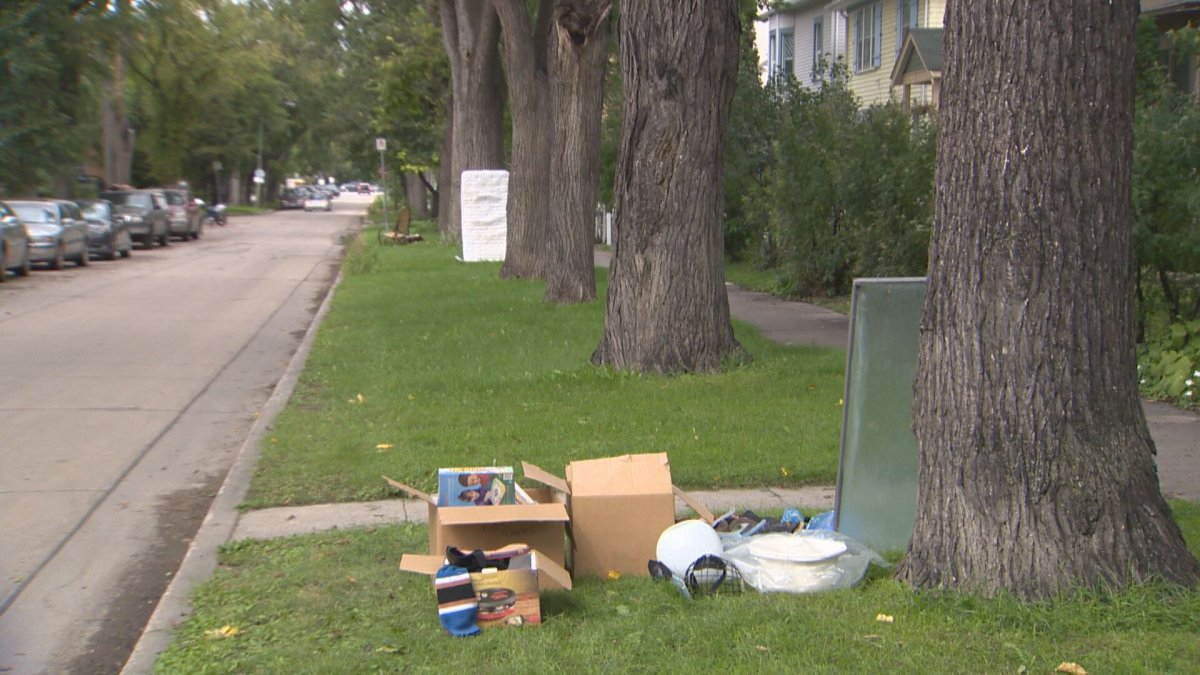The City of Winnipeg is adding more temporary bicycle and active transportation routes across the city pandemic and cancelling this spring’s giveaway weekend due to the the novel coronavirus.

Late last month officials announced the city would be expanding the routes in an effort to help with social distancing requirements during COVID-19.
On Friday the city added five more streets to the list and extended the temporary closures to vehicular traffic until May 29.
“As the global pandemic continues to have an effect on our residents, I’m pleased to see an expansion of active transportation routes that can better facilitate physical distancing,” said Mayor Brian Bowman in a release.
“With ever-evolving circumstances related to COVID-19, the City is once again demonstrating its willingness and ability to innovate.”
The streets now designated as active transportation routes include:
- Lyndale Drive – Cromwell Street to Gauvin Street
- Scotia Street – Anderson Avenue (at St. Cross Street) to Armstrong Avenue
- Wellington Crescent – Academy Road (at Wellington Crescent) to Guelph Street
- Wolseley Avenue – Raglan Road to Maryland Street
- Assiniboine Avenue – Bedson Street to Westwood Drive
- Churchill Drive – Hay Street to Jubilee Avenue
- Egerton Road – Bank Avenue to Morier Avenue
- Kildonan Drive – Helmsdale Avenue to Rossmere Crescent & Larchdale Crescent to Irving Place
- Kilkenny Drive – Burgess Avenue to Patricia Avenue and Kings Drive
The routes limit motor vehicle traffic to just one block throughout the designated area and will be in place daily from 8 a.m. to 8 p.m.

Get weekly health news
The city stresses the roads are not closed and cyclists and pedestrians should use caution and continue to follow the rules of the road.
The city says it will re-evaluate at the end of May to determine if the designations need to be extended.
Goodbye to the giveaway weekend
At a press conference Friday morning Bowman also announced this spring’s giveaway weekend scheduled for May 9 and 10 has been cancelled.
The annual event held in spring and fall sees Winnipeggers put items such as furniture, small appliances, gardening tools and more with a sign tagged “free” on the item by the curb from Saturday until Sunday.
Other Winnipeggers then swing by to check out the free items, taking home what they like.
But that’s all just too risky this year, says Jason Shaw, head of Winnipeg’s emergency operations centre.
“COVID-19 is spread through droplets and there’s always a risk that individuals could be putting out materials that may not be cleaned or sanitized,” said Shaw.
“We don’t want to encourage a give-away weekend where individuals could be taking in materials that could potentially be unclean.”
The city’s website says the fall giveaway weekend, scheduled for Sept.12 and 13, remains a go, for now.
Questions about COVID-19? Here are some things you need to know:
Health officials caution against all international travel. Returning travellers are legally obligated to self-isolate for 14 days, beginning March 26, in case they develop symptoms and to prevent spreading the virus to others. Some provinces and territories have also implemented additional recommendations or enforcement measures to ensure those returning to the area self-isolate.
Symptoms can include fever, cough and difficulty breathing — very similar to a cold or flu. Some people can develop a more severe illness. People most at risk of this include older adults and people with severe chronic medical conditions like heart, lung or kidney disease. If you develop symptoms, contact public health authorities.
To prevent the virus from spreading, experts recommend frequent handwashing and coughing into your sleeve. They also recommend minimizing contact with others, staying home as much as possible and maintaining a distance of two metres from other people if you go out.
For full COVID-19 coverage from Global News, click here.









Comments